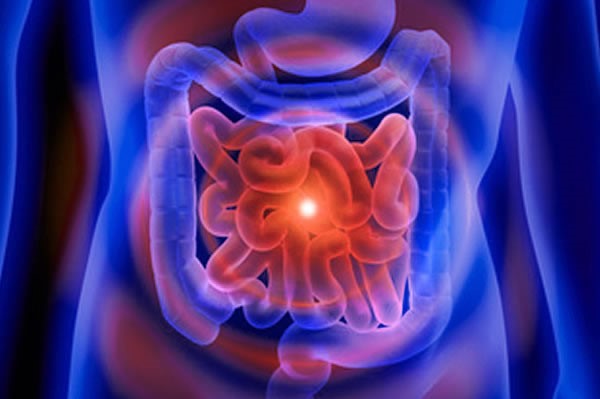
What are Chronic Inflammatory Intestinal Diseases (IBD)?
Inflammatory bowel diseases (IBD) are a group of diseases characterised by inflammation and damage to the digestive tract
These diseases can have different manifestations in different people and also over time.
They are characterised by periods of disease exacerbation and periods of latency or remission.
During the active phases of the disease, the patient with IBD has frequent discharges of diarrhoea, including bloody diarrhoea, abdominal pain, weight loss and fever.
Symptoms diminish during the remission phases, which in many cases can last a long time.
Inflammatory bowel diseases (IBD) include:
- Crohn’s Disease;
- Ulcerative Colitis;
- Indeterminate Colitis;
- microscopic Colitis (Lymphocytic Colitis, Collagenous Colitis, Eosinophilic Colitis).
IBDs are diseases with a chronic/recurrent course, presenting with periods of flare-ups alternating with phases of remission.
Their cause is unknown, but the alteration of the immune system and multifactorial aetiology (causes) are believed to play a decisive role according to the most current scientific evidence.
The age at which these diseases most frequently occur is between 20 and 40, but onset can occur at any age.
They affect males and females equally.
Clinical features of the main IBDs, Inflammatory bowel disease
OICs have several clinical manifestations, but the most frequent are Crohn’s Disease and Ulcerative Colitis.
Crohn’s disease: symptoms and treatment
Crohn’s disease can affect the entire gastrointestinal tract. Depending on location, symptoms may vary, but generally include:
- chronic abdominal pain
- diarrhoea (with or without blood);
- fever (<38°C, especially in the afternoon or evening);
- significant weight loss;
- anaemia.
It is estimated that approximately 3 out of 10 patients may have no symptoms.
If not detected early or if not adequately treated, Crohn’s disease can cause:
- stenosis;
- fistulas (including perianal fistulas);
- abscesses.
These complications almost always require surgery.
Ulcerative colitis: symptoms and treatment
Ulcerative colitis can also affect the entire colon.
Depending on location, symptoms may vary, but generally include:
- blood in the stool;
- diarrhoea;
- fever (<38°C, especially in the afternoon or evening);
- abdominal pain;
- anaemia.
In 10-30% of patients, an ineffective response to therapy may occur, thus necessitating surgery to remove the colon.
Persistently active ulcerative colitis is one of the causes that may increase the risk of colon cancer.
Diagnosis of IBD
The most appropriate method to arrive at the diagnosis of a Chronic Inflammatory Intestinal Disease is to perform a colonoscopy with biopsies.
In Crohn’s disease, the diagnosis is completed by:
- an MRI of the abdomen;
- an ultrasound scan of the intestinal loops;
- in cases involving the small intestine, an enteroscopy with video capsule may be useful.
It is essential to know that the earlier the diagnosis, the more the risk of complications is reduced, thus increasing the possibility of responding fully to treatment.
Monitoring of Inflammatory bowel disease
Monitoring the course of the disease, even when it is in remission, is essential in the treatment of IBD.
The standard monitoring strategy involves performing at regular intervals
- blood tests;
- faecal calprotectin assay;
- ultrasound of the intestinal loops.
When necessary to check the response to therapy or to confirm a flare-up, it is also useful to repeat a colonoscopy with biopsies.
Prevention of colon cancer
As a secondary prevention of colon cancer risk, it is very useful to regularly perform a chromoendoscopy, i.e. an endoscopy with dye that can highlight any areas of dysplasia and/or neoplasia.
Therapies available today
There are several therapies available today:
- Mesalazine;
- Budesonide;
- Systemic cortisone;
- Azathioprine/mercaptopurine;
- Monoclonal antibodies against TNF (infliximab, adalimumab, golimumab);
- Anti-integrin monoclonal antibodies (vedolizumab);
- Monoclonal antibodies against IL12/23 (ustekinumab);
- Micromolecules (tofacitinib);
- Surgery.
Read Also:
Emergency Live Even More…Live: Download The New Free App Of Your Newspaper For IOS And Android
Crohn’s Disease: What It Is And How To Treat It
Wales’ Bowel Surgery Death Rate ‘Higher Than Expected’
Irritable Bowel Syndrome (IBS): A Benign Condition To Keep Under Control
Colitis And Irritable Bowel Syndrome: What Is The Difference And How To Distinguish Between Them?
Irritable Bowel Syndrome: The Symptoms It Can Manifest Itself With
Crohn’s Disease Or Irritable Bowel Syndrome?
USA: FDA Approves Skyrizi To Treat Crohn’s Disease
Crohn’s Disease: What It Is, Triggers, Symptoms, Treatment And Diet
Gastrointestinal Bleeding: What It Is, How It Manifests Itself, How To Intervene
Faecal Calprotectin: Why This Test Is Performed And Which Values Are Normal


